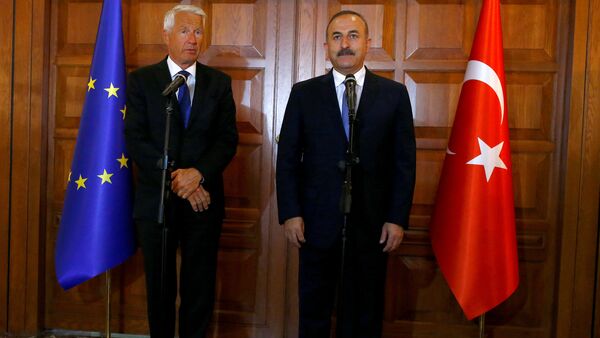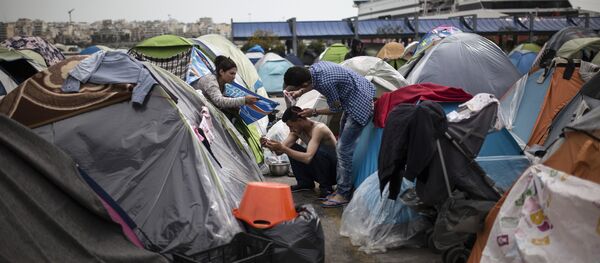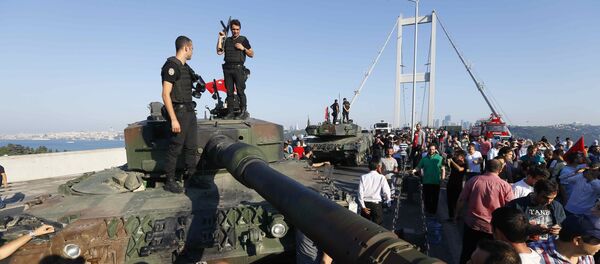The Council of Europe — a separate institution to the European Union — exists to uphold human rights, democracy and the rule of law. Turkey — which is a member — has been subject to much criticism in recent months over crackdown's by Erdoğan on political opponents and the media. The Council of Europe oversees the work of the uphold the European Convention on Human Rights (ECHR), as well as its court.
Amnesty International estimates that 131 media outlets and publishing houses have been shut down and at least 89 arrest warrants were issued for journalists. More than 40 have been detained. More than 15,000 people have been detained since the failed coup. More than 45,000 people have been suspended or removed from their jobs, including police, judges and prosecutors, and others.
The Council of Europe has expressed deep concerns over the situation in Turkey which is negotiating a migrant deal with the EU, but which is stumbling over human rights and democracy issues. Erdogan has declared a state of emergency giving him extensive powers to deal with those he believes were behind the attempted coup.
.@Tjagland meets #Turkey's President Erdogan in #Ankara on 3/8. https://t.co/1soPcFqanE and https://t.co/VAcRb5sP8J pic.twitter.com/MxgMDRfYTc
— Council of Europe (@coe) 1 August 2016
Human Rights Commissioner Nils Muižnieks says the emergency decree gives the Turkish Government powers that "raise very serious questions of compatibility with the ECHR and rule of law principles". In particular, Muižnieks is concerned that those arrested or detained face restrictions to the right of access to a lawyer.
councilofeurope Turkey: Nils Muižnieks expresses fears over state of emergency measures: “I think that Turkey… https://t.co/MVZZSd6JE7
— Council of Europe (@coe) July 27, 2016
He says the scope of the Decree includes "simplified procedures to dismiss judges, including judges of the Constitutional Court and Supreme Courts, without any specified evidentiary requirements", which could be in breach of (Article 3 of the ECHR.
Contravention of ECHR
The Council of Europe says that the Turkish Government has ordered the immediate closure of 1,125 associations, 104 foundations, 19 trade unions, 15 universities, 934 private schools, and 35 private medical establishments. The Council of Europe say many other powers contravene various articles of the ECHR.
"I note that it is not the activities of these bodies that are suspended or placed under trustee control: they are disbanded and their assets revert automatically to state authorities. The Decree further provides a simplified administrative procedure for the disbanding of further organizations (Article 2);
"A simplified administrative procedure to terminate the employment of any public employee (including workers), with no administrative appeal and no evidentiary requirements (Article 4);
Automatic cancellation of passports of persons being investigated or prosecuted, without court order (Article 5)," Muižnieks said.
The first state of emergency decree adopted by the Turkish government is very worrying. Here are my comments: https://t.co/BdrEtszK2T
— Nils Muiznieks (@CommissionerHR) 26 July 2016
Under the Turkish constitution, the government cannot suspend the ECHR, but it has applied for some derogations from it under the emergency powers decree. Council of Europe Secretary General Thorbjørn Jagland is set to warn Erdoğan that he faces sanctions for breaches of the ECHR, which — in turn — could throw the EU-Turkey migrant deal into disarray.




